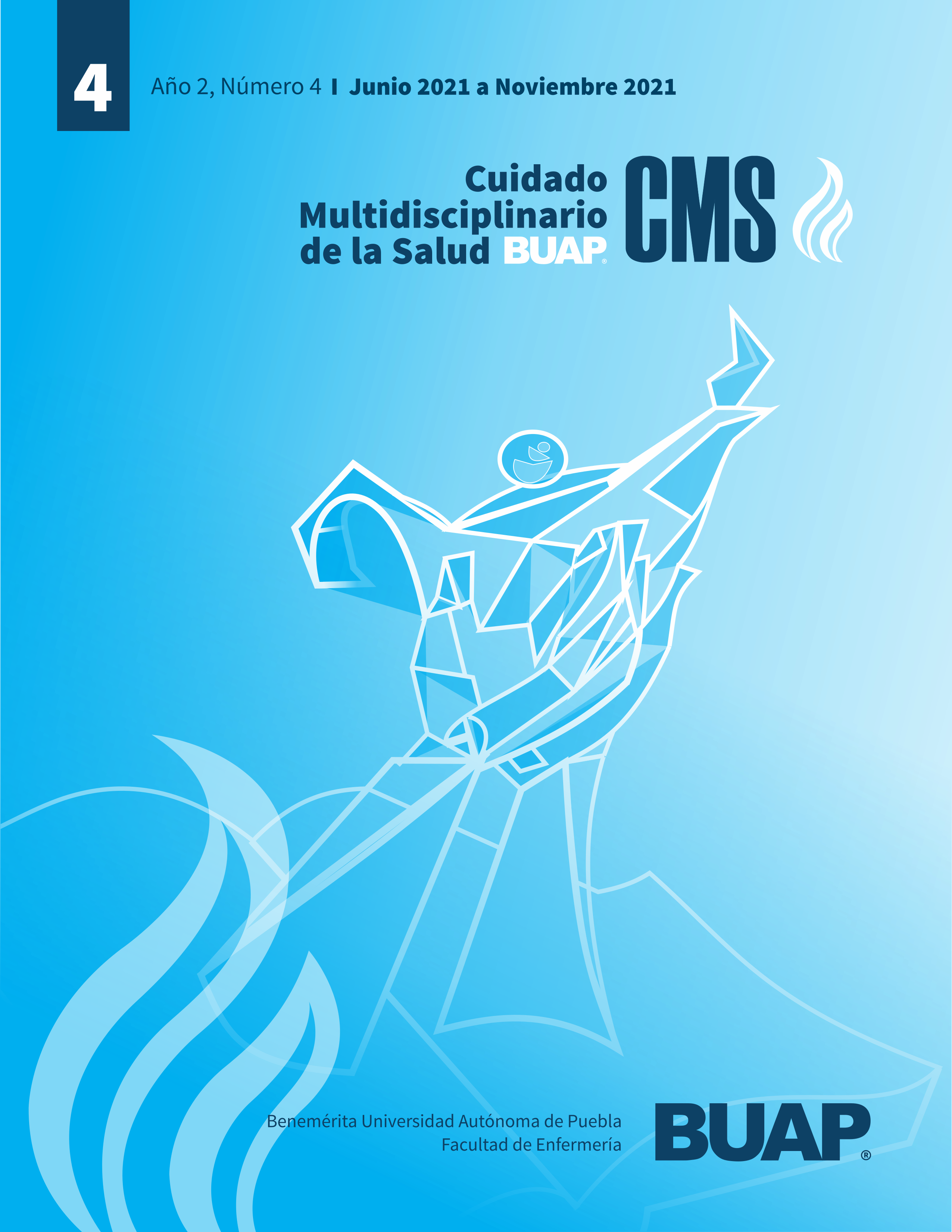Raising styles in Mexican hospitalized children under 5 years old
Keywords:
Raising Styles, Caregiver Level of Education, Socioeconomic Level, Hospitalized ChildAbstract
Introduction: raising styles to influence the attachment level the parents or tutors have to their children. If the attachment process is disturbed by diverse circumstances, the child will develop a group of socially abnormal reactions and behaviors. The objective of this study was to analyze the caregivers’ raising styles of hospitalized children in public health institutions, moreover to determine if there are differences in raising styles related to the gender of the child, the education level of the main caregiver, and family income.
Methods: This is transversal and analytical research. It was done from April to November 2016. The Spanish adaptation of the Parent-Child Relationship Inventory (PCRI-M) questionnaire was used, which includes 6 dimensions. The instrument was applied to 457 families, however, the sample size varied depending on the age of the child.
Results: No statistically significant differences were found between the raising styles and the gender of the child, caregiver level of education, and family income. However, high scores were found at some dimensions in the case of girls, caregivers with more than basic education level, and income lower than 4000 Mexican pesos.
Conclusions: In this research, all dimensions had high scores in their respective measurements by age range, which indicated a good parental raising by the caregivers in both hospitals.
References
Barudy Labrin, J., Dantagnan, M., & Comas, E. (2010). Los desafíos invisibles de ser madre o padre: Manual de evaluación de las competencias y la resiliencia parental. España: Gedisa.
Baumrind, D. (1966). Effects of Authoritative Parental Control on Child Behavior. Child Development, 37(4), 887–907. https://doi.org/10.2307/1126611
Baumrind, D. (1991). Parenting styles and adolescent development. En Encyclopedia of adolescence (pp. 746–758). New York: Garland Publishing.
Betancourt M, L., Rodríguez Guarín, M., & Gempeler Rueda, J. (2007). Interacción madre-hijo, patrones de apego y su papel en los trastornos del comportamiento alimentario. Universitas Medica, 48(3), 261–276.
Bornstein, M. H. (2002). Parenting infants. En Handbook of Parenting: Children and Parenting (2a ed., Vol. 1, pp. 3–43). New Jersey: Erlbaum.
Bowlby, J. (1989). Una base segura: Aplicaciones clínicas de una teoría del apego. Barcelona: Paidós Ibérica.
Cuervo Martínez, Á. (2010). Pautas de crianza y desarrollo socioafectivo en la infancia. Diversitas: Perspectivas en Psicología, 6(1), 111–12 https://doi.org/10.15332/s1794-9998.2010.0001.08
Fonagy, P. (1999). Figuras significativas: Teoría del apego. Washington: Lecture.
Gerard, A. B. (1994). Parent-child relationship inventory (PCRI): Manual. Los Ángeles, Calif.: Western.
Ortiz-Hernández, L., Cossío-Torres, P. E., Padrón-Salas, A. et al. Psychological Services.
Maccoby, E. E. (1980). Social development: Psychological growth and the parent-child relationship. New York: Harcourt Brace Jovanovich.
Morano Guillén, M. (2014). Reseña del libro El niño abandonado: Guía para el tratamiento de los trastornos del apego, de N. P. Rygaard. Erebea, 4, 475–477. http://www.uhu.es/publicaciones/ojs/index.php/erebea/article/view/2524/2398
Nerín, N. F., Pérez Nieto, M. Á., & Pérez, M. J. de D. (2014). Relación entre los estilos de crianza parental y el desarrollo de ansiedad y conductas disruptivas en niños de 3 a 6 años. Revista de Psicología Clínica con Niños y Adolescentes, 1(2), 149–156. https://www.revistapcna.com/sites/default/files/6-rpcna_vol.2.pdf
Ramirez Castillo, M. A. (2002). Prácticas de crianza de riesgo y problemas de conducta en los hijos. Apuntes de Psicología, 20(2), 7-17.
Ramírez, M. A. (2005). Padres y desarrollo de los hijos: prácticas de crianza. Estudios Pedagógicos, 31(2), 167–177. https://doi.org/10.4067/S071807052005000200011
Raya, A., Pino, M. J., & Herruzo Javier. (2009). La agresividad en la infancia: El estilo de crianza parental como factor relacionado. European Journal of Education and Psychology, 2(3), 211–222. https://formacionasunivep.com/ejep/index.php/journal/article/view/28/39
Repetur Safrany, K. A., & Quezada Len, A. O. (2005). Vínculo y desarrollo psicológico: La importancia de las relaciones tempranas. Revista Digital Universitaria (1607-6079), 6(11), 2-15.
Reyes Castillo, A. C., Rivera Valerdi, A. Y., & Galicia Moyeda, I. X. (2013). Relación entre el autoconcepto y la percepción de la crianza en madres adolescentes y adultas. Revista Intercontinental de Psicología y Educación, 15(2), 45–73.
Roa Capilla, L., & del Barrio, V. (2001). Adaptación del Cuestionario de Crianza Parental (PCRI-M) a población española. Revista Latinoamericana de Psicología, 33(3), 329–341. https://www.redalyc.org/articulo.oa?id=80533307
Shapiro, L. E., & Tiscornia, A. (1997). La inteligencia emocional de los niños. Barcelona, España: Grupo Zeta.
Siegel, D. J. (2007). La mente en desarrollo: Cómo interactúan las relaciones y el cerebro para modelar nuestro ser. Bilbao: Desclée de Brouwer.
Torio López, S. (2003). Estudio socioeducativo de hábitos y tendencias de comportamiento en familias con niños de Educación Infantil y Primaria en Asturias. España: Universidad de Oviedo.
Torio López, S., Peña Calvo, J. V., & Inda Caro, M. (2008). Estilos de educación familiar. Psicothema, 20(1), 62–70. http://www.psicothema.com/pdf/3430.pdf
Torio López, S., Peña Calvo, J. V., & Rodríguez Menéndez, M. del C. (2008). Estilos educativos parentales: Revisión bibliográfica y reformulación teórica. Teoría de la educación, 20, 151–178. https://doi.org/10.14201/988
Vargas Rubilar, J., & Filippetti, V. A. (2014). Importancia de la Parentalidad para el Desarrollo Cognitivo Infantil: una Revisión Teórica. Revista Latinoamericana de Ciencias Sociales, Niñez y Juventud, 12(1), 10. 10.11600/1692715x.1219110813
Downloads
Published
How to Cite
Issue
Section
License
The moral rights belong to the author, the economic rights belong to the Benemérita Universidad Autónoma de Puebla.






